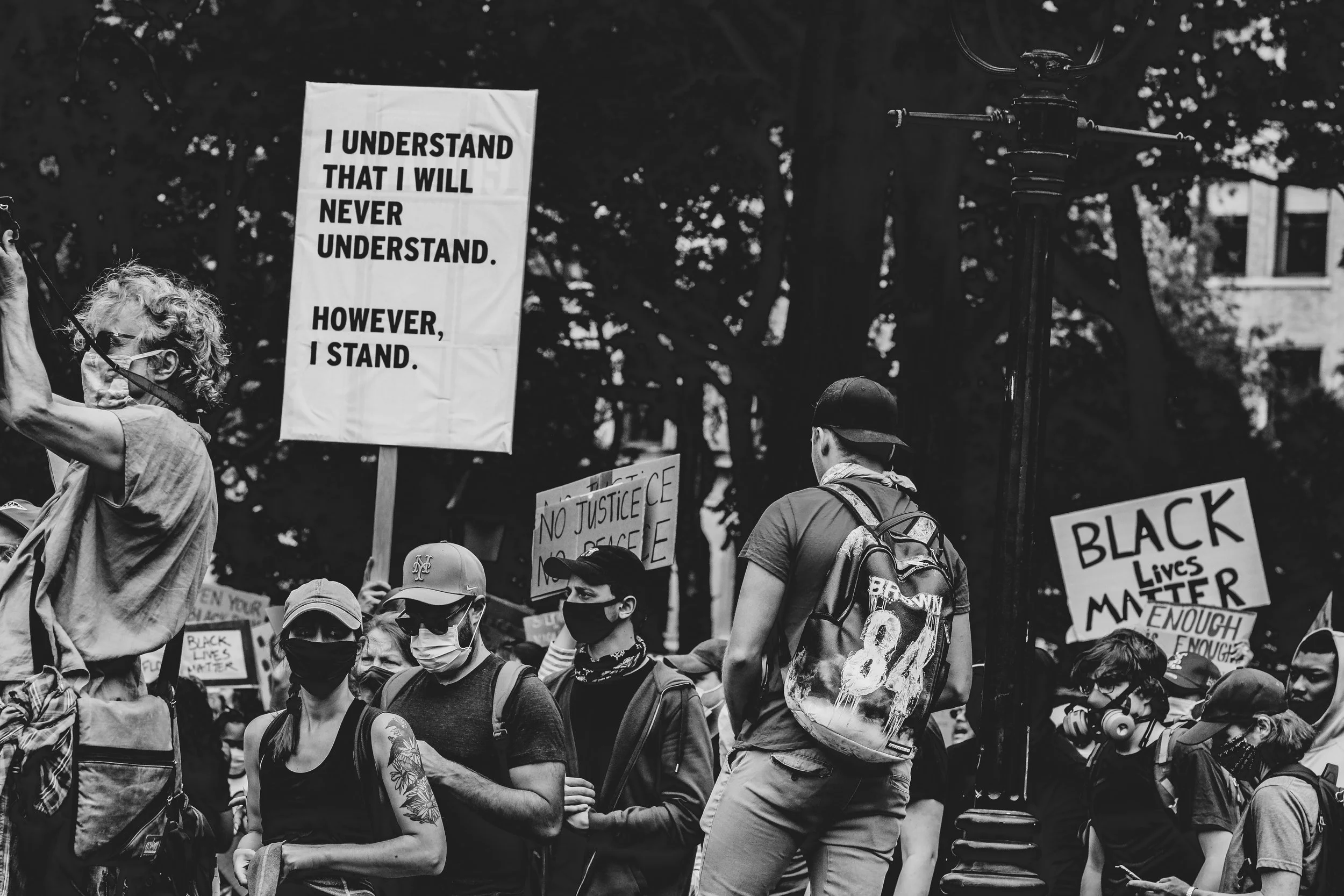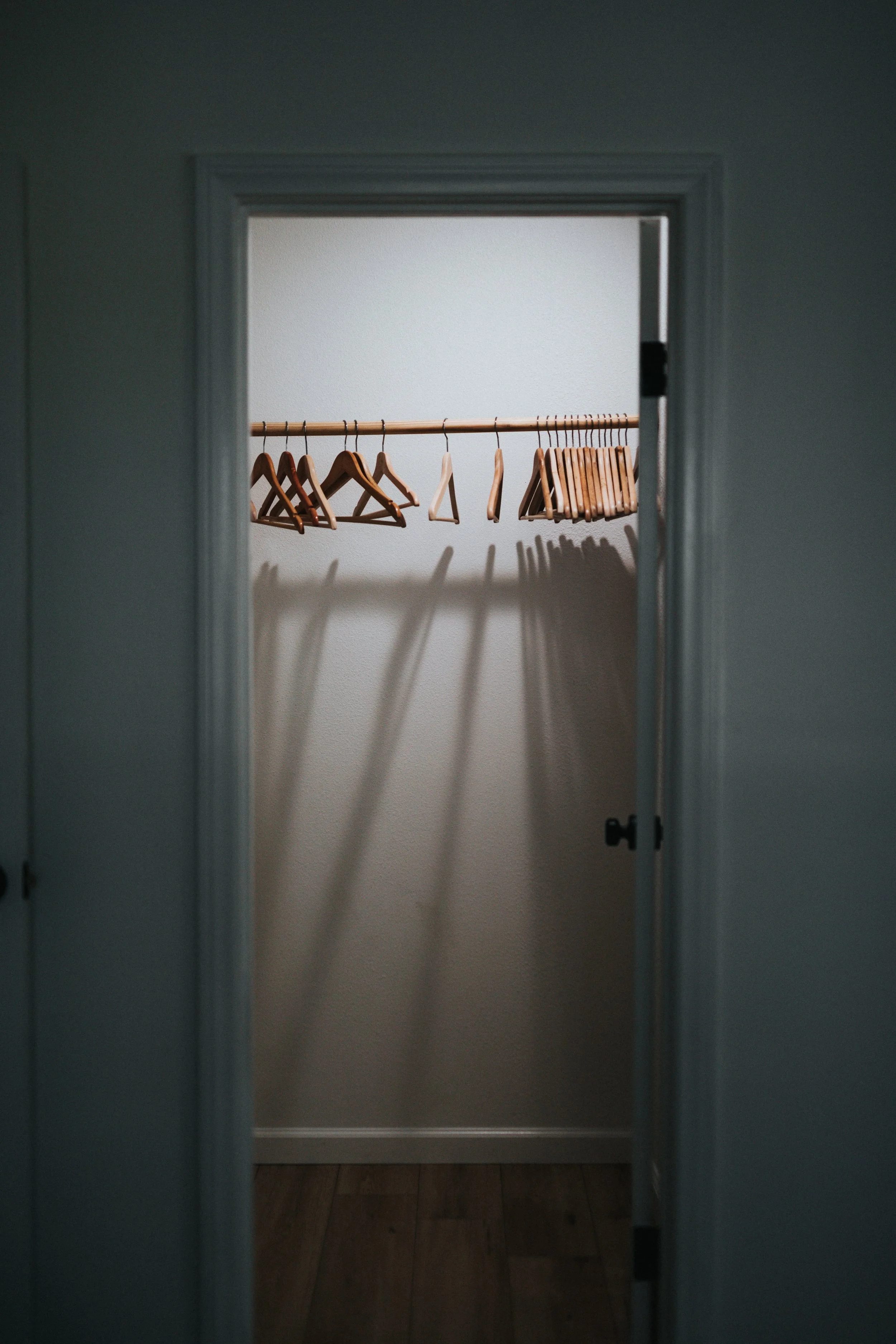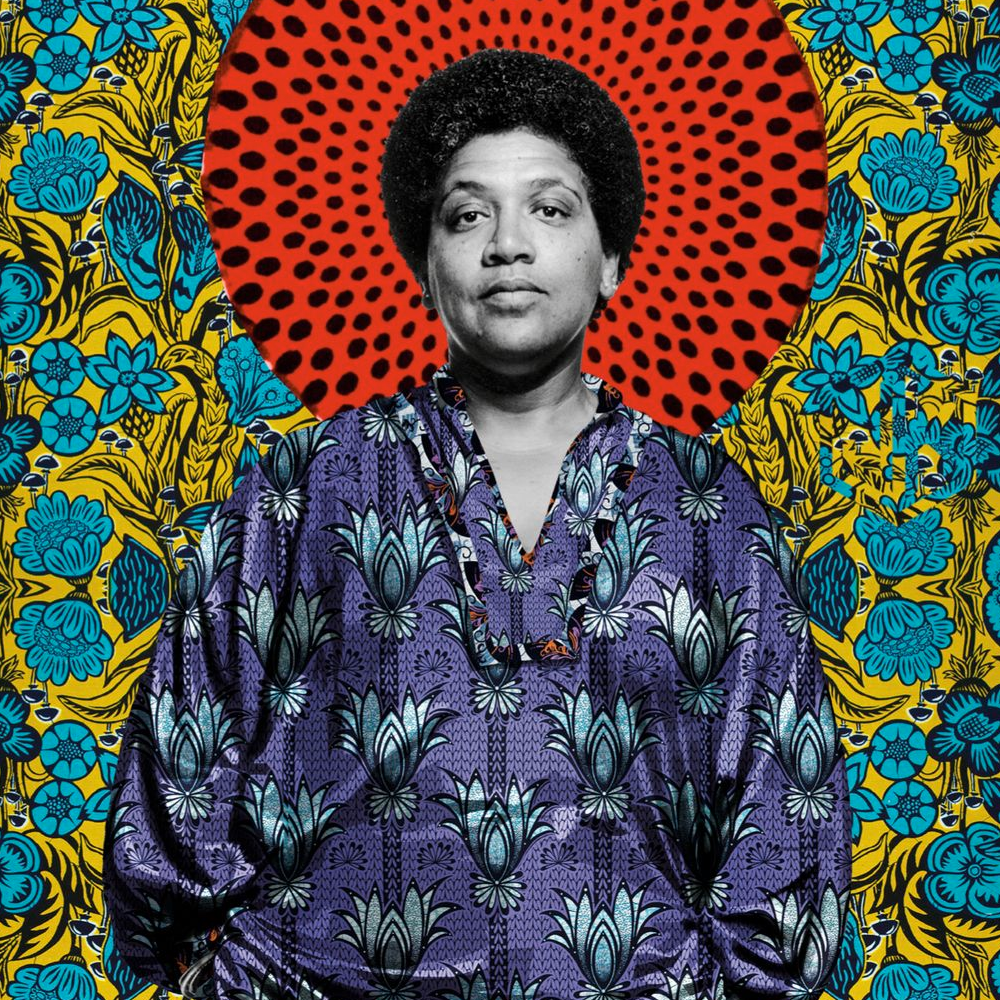Holding Change
Scripture Verse: Mark 10:17-31
As he was setting out on a journey, a man ran up and knelt before him and asked him, “Good Teacher, what must I do to inherit eternal life?” Jesus said to him, “Why do you call me good? No one is good but God alone. You know the commandments: ‘You shall not murder. You shall not commit adultery. You shall not steal. You shall not bear false witness. You shall not defraud. Honor your father and mother.’ ” He said to him, “Teacher, I have kept all these since my youth.” Jesus, looking at him, loved him and said, “You lack one thing; go, sell what you own, and give the money to the poor, and you will have treasure in heaven; then come, follow me.” When he heard this, he was shocked and went away grieving, for he had many possessions.
————————-
Not all that long ago, our country was reckoning with the realities of police brutality on communities of color. For decades we heard the cries of these communities about their mistreatment. The pleasant interactions we’ve had with police made us distrust their claims, and not until the availability of cell phone video cameras did we get to see, with our own eyes, the brutality they were speaking of.
Photo by Jakayla Toney on Unsplash
As a result, there was a sort of awakening, a shaking out of our perceptions, that led many of us to attend racial equity trainings, and talks that put us into contact, maybe for the first time, with terms like “white supremacy culture,” and books about white fragility. For several years we seemed immersed in the conversations around race.
I have noticed how the energy around this has shifted. There appears to be a frustrated exhaustion on the part of white folks who just want a break from having to think about it all the time. As we began to do the work of becoming aware of racism and white supremacy, we discovered that the type of change being asked for was not simply passing a piece of legislation, or making some kind of statement, but, instead looking inward at difficult realities within us. Realities like the way white supremacy culture lives within our genetics, how it is interwoven in our histories, and the way in which our communities continue to function under its influence today.
When faced with the prospect of diving deeper into the work of dismantling white supremacy, we all seemed to hit a collective wall of resistance. It sounded like grumpy sighs of, “Ugh, okay, now what?”
Photo by Katie Rainbow 🏳️🌈 on Unsplash
I have also been sensing this in other areas. As younger generations continue to explore the complicated landscape of gender and sexuality, I sense collective frustrations about not being able to keep up. When another identity is added to the LGBTQIA+ community, I sometimes catch a subtle eye roll combined with a dismissive/tired chuckle.
So too, do I notice it when talking about the legacy of colonialism, and the role many of our ancestors played in the attempted genocide of Native peoples here in America. It seems that we can only handle so much self-reflection before we end up saying things like, “Yeah, but why should I feel guilty about what my relatives did?”
I’ve noticed this kind of bottoming out of energy around adapting, learning, and growing within the ever-changing world. I, myself, have felt this, as I try to summon some non-existent stamina to be educated on another thing.
I noticed this quandary recently, as I talked with my therapist about the work of therapy. I’ve now been in therapy for two years. Twice a month I show up at sessions and talk about my present as a way to look at my past and discover the events that created my current reality.
Obviously, this looking back often puts us in contact with past traumas, and struggles, many of which we assumed no longer had the same emotional ferocity as they once did, but we now know still feel like an exposed nerve.
We often seek out therapy to address, what appears to be, a particular issue, and may think that once that one issue is addressed we will have completed our time in therapy. But, what we quickly discover is that the one thing is connected to all things…that our lives are like interconnected underground networks, tied together, and all of it will be disturbed even if we just start with a single thread.
Photo by Nathan Dumlao on Unsplash
I spoke about this reality at Spiritual Direction this week, and our Friend Claire Nail offered this image to me. She said, “It’s sort of like you decide one day to finally clean out that messy closet, that has piles of discarded and forgotten clothes heaped on the bottom and boxes of old things that made the move with you a decade ago that you’d just rather keep on the shelf for another decade. And you do it. You clean it out, and you get rid of a bunch of stuff, and you begin putting the shirts on hangers back, only to lean on the back wall and you fall through into another closet behind the one you just finished cleaning. And inside that closet are move messes, more boxes of forgotten things, and suddenly the good feelings you had about getting the first closet clean disappear because now you have another one to clean up.”
This was a helpful metaphor as I, appear, to be in my fourth or fifth closet. I think once you crash through your third closet, you may throw your hands up in the air, and shout some expletives, because who really feels like doing this for the rest of your life?
But, eventually, accepting that this unpacking, this ever-present work of going deeper, feels less like a chore, and more like an opportunity.
This brings me back to the conversation about this seemingly collective frustration, or hitting a limit on what we can possibly learn and grow from. Perhaps, we create an imaginary finish line in our heads.
Our Quaker Meeting became open and affirming to the Queer community! There! We did it! But, now we are talking about pronouns, and polyamory, and noticing that the work of being welcoming to the Queer community is ongoing, and ever progressing.
Audre Lorde
We wrote a land acknowledgment, and just this summer we were challenged by Native Alaskans to do more to repair the damages Quakers carried out in Indian boarding schools across the country.
Perhaps, the real work is confronting the finish lines we’ve created. Audre Lorde said, “The true focus of revolutionary change is never merely the oppressive situations that we seek to escape, but that piece of the oppressor which is planted deep within each of us.”
Micky ScottBey Jones follows up that quote with this simple reminder, “Doing the work reveals more of the work to be done in us.”
Transformation around our understanding of how change works will happen when we stop feeling bitter about it, and instead seeing the liberation available to each of us the more closets we fall into. Two years into my therapy work, I often feel like there cannot possibly be more things to confront, to unravel, but hardly a week goes by in my life where I don’t make some fascinating discovery that puts the way I am in the world into perspective. The more I am able to discover the reason why I am reacting to my circumstances, the more I am able to be in them with loving and compassionate presence. Feeling less grumpy and defensive about the change, and instead intrigued about the more evolved version of myself that is in development.
The more I am able to see the ways white supremacy has shaped the way I carry myself in the world, the more I feel able to stay present in conversations about race, and to go to the places that people of color are encouraging me to go…
The more I am able to see colonialism in my genetics, the more clearly I can see the ways in which it encourages me to conquer myself, to tame the wild and fruitful places into predictable mono-cultures.
The more I see how I’ve been conditioned to believe in the gender binary, the more I can see that way it holds me back from fully expressing myself without fear of embarrassment.
The shift has been in realizing that familiarity creates a false sense of comfort, while intrigue and curiosity create a sense of liberation and hope-filled potential.
The gospel reading this morning feels like it touches on this reality. The young rich man asks Jesus how to live forever, how to reach heaven, and after he assures Jesus he’s done everything that has been asked of him, Jesus challenges him in the precise place he knows is holding him back from his own liberation, his greed, his believing that wealth and status is what makes him lovable and good. Jesus asked the rich young man to go through that closet, to sort through this narrative of himself that is holding him back from true transformation…and it was too great of a challenge for him and he walked away.
Perhaps, we get too scared to step into transformational liberation because we know it will mean we may be unfamiliar to ourselves after making the step. So we walk away before we are able to step into the type of liberation that we know will change ourselves and our communities. What if we created the brave space here, at WHF, for us to do this work, and to hold the messiness it will inevitably create?
Queries:
When have you done “the work” only to discover that it has revealed more work to be done within you?
How are you bumping up against resistance to more liberation for you, your communities, and your neighbors?
What assurances can you offer weary people about what lies on the other side of change?



